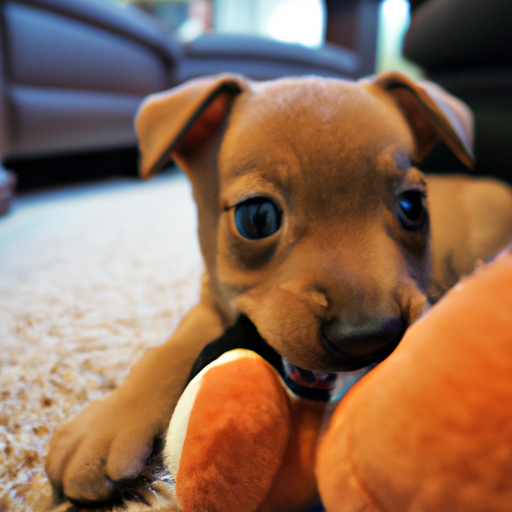Introduction
You’re now the proud caregiver of a 3-month-old puppy, a bundle of joy and energy that’s just waiting to be guided and loved. This is a critical stage in your puppy’s life, one that will shape their behavior, health, and happiness for years to come. So, how do you navigate through this stage? This detailed guide will walk you through everything you need to know.
Understanding Your Puppy’s Development
At 3 months old, your puppy is in the midst of their “socialization period.” This means they’re ready to learn about the world, make new friends, and develop their unique personality. Understanding these developmental milestones can help you provide the best possible care.
- Physical development: Your puppy is growing rapidly. They are also developing coordination and physical abilities.
- Social development: Your puppy is learning how to interact with others, including both dogs and humans.
- Cognitive development: Your puppy’s brain is growing, and they’re starting to learn basic commands and rules.
Caring for Your Puppy’s Health
Just like human babies, puppies also require regular health checks and vaccinations. As a caregiver, it’s your responsibility to ensure your puppy stays healthy.
Regular Vet Checks
It’s crucial that your puppy gets regular check-ups at the vet. At this stage, they should be dewormed and receive their first set of vaccinations.
| Age | Vaccination |
|---|---|
| 6-8 weeks | Distemper, Parvovirus |
| 10-12 weeks | DHPP (vaccines for distemper, adenovirus, parainfluenza, and parvovirus) |
| 12-24 weeks | Rabies |
Nutrition
Your 3-month-old puppy needs a diet rich in protein, healthy fats, and carbohydrates. Make sure to feed them puppy-specific food, as adult dog food won’t meet their nutritional needs.
- Feed your puppy 3-4 times a day.
- Provide clean, fresh water at all times.
- Avoid feeding them human food or treats high in sugar.
Training Your Puppy
Training should start as early as possible. It’s not just about teaching your pup to obey commands, but also about instilling good manners and social behavior.
House Training
Make a schedule and stick to it. Puppies have small bladders and need to go out frequently.
- Take your puppy out every 2-3 hours.
- Always take them out after meals, naps, and playtime.
- Reward your puppy for doing their business outside.
Obedience Training
Teach your puppy basic commands like “sit,” “stay,” and “come.” Remember to always use positive reinforcement.
Socializing Your Puppy
Socialization is crucial at this stage. Your puppy needs to get used to different environments, people, and other animals.
- Introduce your puppy to different people and environments in a controlled manner.
- Enroll them in a puppy socialization class.
- Let them meet other vaccinated dogs.
Troubleshooting Common Problems
Despite your best efforts, your puppy might display some problematic behaviors. Here’s how to deal with them.
Chewing
Puppies love to chew. Provide them with plenty of chew toys and discourage them from chewing on inappropriate items.
Separation Anxiety
Puppies can become anxious when left alone. Gradually acclimate your puppy to being alone and make sure they have plenty of toys to keep them occupied.
Frequently Asked Questions
1. How much should my 3-month-old puppy sleep?
Your puppy needs around 15-20 hours of sleep per day, including both nighttime sleep and naps.
2. How much should my 3-month-old puppy eat?
The amount of food depends on the puppy’s size and breed. Your vet can provide a personalized feeding plan.
3. How much exercise does my 3-month-old puppy need?
Puppies have lots of energy, but their bodies are still growing. Aim for several short (5-10 minutes) play and exercise sessions each day.
4. My puppy is biting a lot. What should I do?
This is normal behavior for a teething puppy. Provide chew toys and discourage them from biting people or furniture.
Remember, raising a puppy requires patience, love, and consistency. But the joy and companionship they bring are well worth the effort. Happy parenting!



